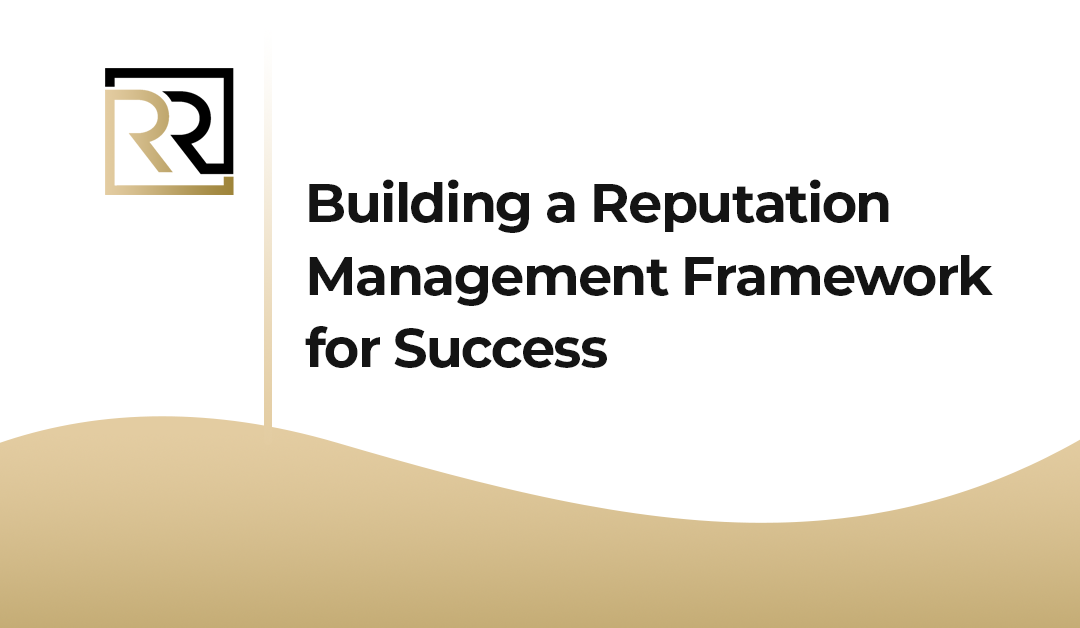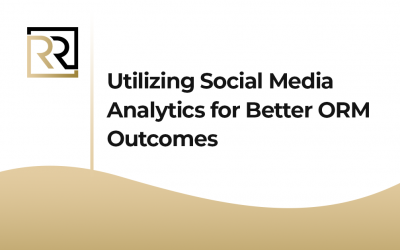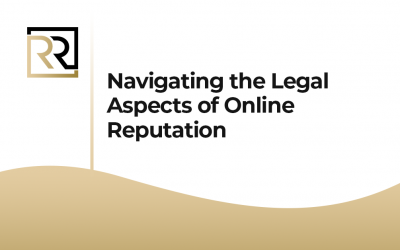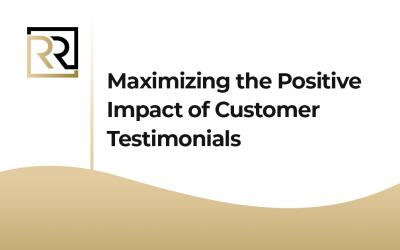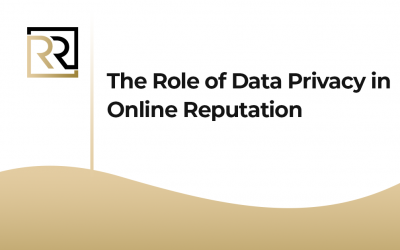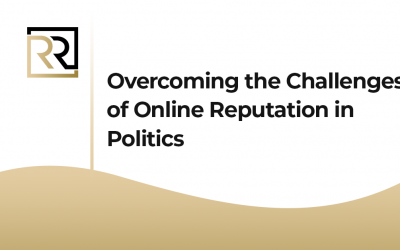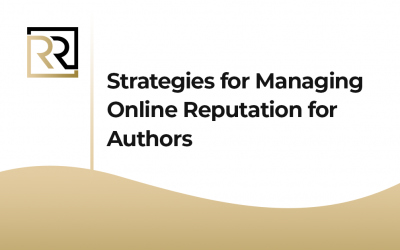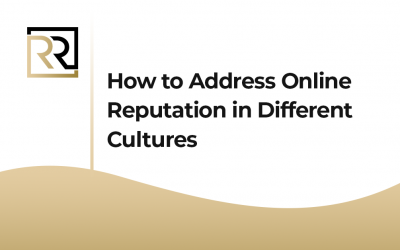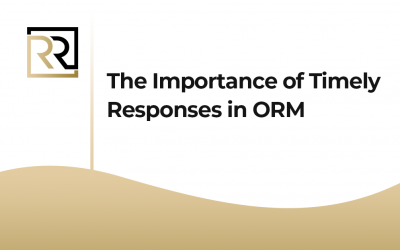Constructing a Reputation Management Framework: A Blueprint for Success
In today’s digital age, where online perceptions can make or break businesses and individuals alike, having a solid reputation management framework is essential. Whether you’re a brand striving to maintain a positive image or an individual aiming to cultivate a strong personal brand, a well-structured approach to reputation management can be the difference between success and failure. In this comprehensive guide, we’ll explore the fundamentals of building a reputation management framework and provide actionable steps to help you achieve success.
Reputation Management Framework for Success
Understanding the Importance of Reputation Management
Before diving into the framework, let’s first understand why reputation management is crucial:
1. Trust and Credibility
A positive reputation builds trust and credibility with your audience, whether they are customers, clients, employers, or peers. It establishes you as a reliable and reputable entity in your industry or niche.
2. Brand Perception
Your reputation shapes how others perceive your brand or personal brand. A strong reputation can differentiate you from competitors and position you as a leader in your field, while a negative reputation can deter potential customers or opportunities.
3. Crisis Preparedness
Having a reputation management framework in place prepares you to effectively handle crises or negative situations. It enables you to respond promptly, mitigate damage, and protect your reputation in the face of adversity.
Components of a Reputation Management Framework
Now, let’s break down the key components of a reputation management framework:
1. Define Your Goals and Objectives
Start by defining clear goals and objectives for your reputation management efforts. What do you want to achieve? Are you aiming to enhance brand awareness, increase customer satisfaction, mitigate negative feedback, or all of the above? Establishing specific goals will guide your strategy and measurement of success.
2. Conduct a Reputation Audit
Conduct a comprehensive audit of your current online reputation. Evaluate your presence across various channels, including social media, review sites, search engine results, and industry-specific platforms. Identify strengths, weaknesses, opportunities, and threats to inform your reputation management strategy.
3. Identify Your Target Audience
Understand your target audience and their preferences, values, and behaviors. Who are your key stakeholders, and what matters most to them? Tailor your messaging and engagement efforts to resonate with your target audience, addressing their needs and concerns.
4. Develop Brand Guidelines and Messaging
Develop clear brand guidelines and messaging that align with your values, mission, and goals. Ensure consistency in tone, voice, and visual identity across all communication channels to reinforce your brand’s image and identity.
5. Implement Monitoring and Tracking Tools
Utilize reputation monitoring and tracking tools to stay informed about online conversations and mentions related to your brand. Set up alerts and notifications to monitor brand mentions, reviews, social media activity, and sentiment trends in real-time.
6. Engage with Your Audience
Engage with your audience authentically and proactively across various online channels. Respond to comments, messages, and reviews promptly and professionally, addressing both positive feedback and concerns or complaints.
7. Generate Positive Content and Reviews
Create and share positive content that showcases your expertise, values, and contributions. Encourage satisfied customers or clients to leave reviews and testimonials on relevant platforms, further bolstering your reputation.
8. Address Negative Feedback Effectively
Address negative feedback or criticism gracefully and constructively. Acknowledge any valid concerns or issues raised, apologize for any shortcomings, and take corrective action to resolve the situation and demonstrate your commitment to customer satisfaction.
9. Measure and Analyze Results
Regularly measure and analyze key performance indicators (KPIs) to evaluate the effectiveness of your reputation management efforts. Track metrics such as brand sentiment, online mentions, review ratings, social media engagement, and website traffic to gauge progress towards your goals.
Conclusion: Reputation Management Framework for Success
Building a reputation management framework is essential for achieving success in today’s competitive digital landscape. By defining clear goals, conducting a reputation audit, identifying your target audience, developing brand guidelines, implementing monitoring tools, engaging with your audience, generating positive content, addressing negative feedback, and measuring results, you can effectively manage and enhance your online reputation. Remember, reputation management is an ongoing process that requires dedication, consistency, and adaptability. By following these steps and continuously refining your approach, you can build a strong and resilient reputation that positions you for long-term success in your industry or niche.
Take care of your search engine reputation management with us.
Services
Our Services
Search Engine Content Removal
Social Media Content Removal
Positive Content Creation
Online Reviews Optimization
Search Results Optimization
Learn
Our Blog
Utilizing Social Media Analytics for Better ORM Outcomes
Social Media Analytics for Better ORM Social Media Analytics for Better ORM, in the digital age, social media has become a vital platform for shaping brand perception and managing online reputation....
Crafting a Compelling Online Story for Your Brand
Crafting a Compelling Online Story for Your Brand: A Guide to Captivate Audiences and Boost Engagement Further, in today's digital age, storytelling has become a powerful tool for brands to connect...
Navigating the Legal Aspects of Online Reputation
Legal Aspects of Online Reputation Further, in the digital age, our online reputation can make or break our personal and professional lives. However, navigating the legal aspects of online...
Maximizing the Positive Impact of Customer Testimonials
Harnessing the Power of Customer Testimonials: Strategies for Maximum Positive Impact Further, in today's competitive business landscape, the voice of the customer holds immense power. Therefore,...
The Role of Data Privacy in Online Reputation
Safeguarding Your Online Reputation: The Crucial Role of Data Privacy in Online Reputation Further, in today's digital age, our online presence plays a significant role, Data Privacy in...
Overcoming the Challenges of Online Reputation in Politics
Online Reputation in Politics Further, in the digital age, politicians face unprecedented challenges when it comes to managing their online reputation. With the proliferation of social media,...
Strategies for Managing Online Reputation for Authors
Strategies for Managing Online Reputation for Authors Further, in today's digital age, authors face unique challenges when it comes to managing their online reputation. Moreover, with...
How to Address Online Reputation in Different Cultures
Strategies for Addressing Online Reputation Across in Different Cultures Further, in our increasingly interconnected world, businesses and individuals must navigate the complexities of cultural...
The Importance of Timely Responses in ORM
The Importance of Timely Responses in ORM Further, in the digital realm, where information travels at lightning speed and opinions are formed in an instant, timely responses play a...


